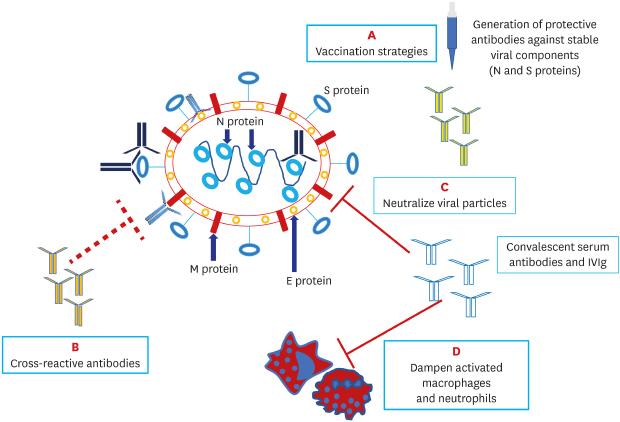A global research team has stressed that immune therapy, such as convalescent plasma, intravenous immunoglobulin, and human monoclonal antibodies, may be vital in combating Covid-19.
The team, led by Professor Armen Yuri Gasparyan of the Departments of Rheumatology and Research and Development at Dudley Group NHS Foundation Trust, stressed that in the absence of highly effective antiviral drugs and approved Covid-19 vaccines, the urgent response to the virus spread might include boosting the immune system and utilizing virus-neutralizing antibodies.
Professors Durga Prasanna Misra at India's Sanjay Gandhi Postgraduate Institute of Medical Sciences, Marlen Yessirkepov at Kazakhstan's South Kazakhstan Medical Academy, and Olena Zimba at Ukraine's Danylo Halytsky Lviv National Medical University also participated in the study.
The results of the research, titled “The Perspectives of Immune Therapy in Coronavirus Disease 2019," were published in the Journal of Korean Medical Science.

In the research paper, the team gave an overview of antibody production and immune therapy in Covid-19, such as bacillus Calmette-Guérin (BCG), influenza, and pneumococcal pneumonia vaccination, intravenous immunoglobulin, convalescent serum, and monoclonal antibodies.
Regarding BCG vaccination, it suggested that multiple doses of tuberculosis vaccine BCG could offer protection from Covid-19 thanks to the so-called trained immunity phenomenon.
"A recent preprint revealed nonspecific beneficial effects of universal BCG vaccination on hindering Covid-19 spread and its complications in some countries, such as Japan," the team said. "The differing COVID-19 mortality rates among countries allow hypothesizing that increasing BCG vaccination may be protective during this pandemic, particularly in countries with no mandatory vaccination policy."
For influenza and pneumococcal pneumonia vaccination, the team recommended that countries optimize the coverage of healthy children and adults with influenza and pneumococcal vaccinations to mitigate the effects of community-acquired pneumonia.
"The same vaccination strategy is strongly recommended for the majority of patients with autoimmune inflammatory rheumatic diseases before the administration of immunosuppressive therapy," the team said.
However, no studies are suggesting the cross-resistance to Covid-19 in individuals vaccinated against influenza or pneumococcal pneumonia, it noted.
In treating patients with intravenous immunoglobulin (IVIg), the researchers said that experts around the globe are hypothesizing that IVIg can be an effective Covid-19 treatment as IVIg preparations contain antibodies that cross-react against Covid-19 and other virus antigens in-vitro.
"The initial cases of high-dose IVIg therapy combined with antivirals – lopinavir and ritonavir -- and methylprednisolone in severe Covid-19 patients in Wuhan, China, demonstrated the elevation of lymphocyte counts, a decrease of inflammatory markers, partial or complete resolution of specific lung affections, and negative nasal and oropharyngeal swab tests within a few days of therapy," they said.
The research also proposed that convalescent serum that utilizes hyperimmune IgG antibodies from subjects who have recovered from Covid-19 and produced a high amount of the antibodies as a treatment for the virus.
"The required amount of antibodies in convalescent serum and duration of therapy depends on the viral load and severity of Covid-19," it said. "It is believed that virus-neutralizing antibodies, even in small quantities, can be effective when used for prevention or treatment of early symptoms of Covid-19."
The multinational research team also suggested that specific human monoclonal antibodies (mAbs) blocking Covid-19 interaction with angiotensin-converting enzyme 2(ACE2) receptors and virus entry to human cells may offer more targeted options.
"The COVID-19 pandemic necessitates mobilizing all available resources for containing the virus spread," the paper said. "It is apparent that isolation, social distancing, use of personal protective equipment, and proper individual and population hygiene decrease exposure to the deadly virus and minimize the risk of severe Covid-19."
The team hypothesizes that individuals regularly vaccinated against some infections, such as measles and tuberculosis, may demonstrate better outcomes when exposed to Covid-19, the paper added.
The researchers stressed that considering all safety issues, high-risk populations should undergo regular vaccinations to train their immunity and actively produce antibodies that may cross-react with Covid-19.

